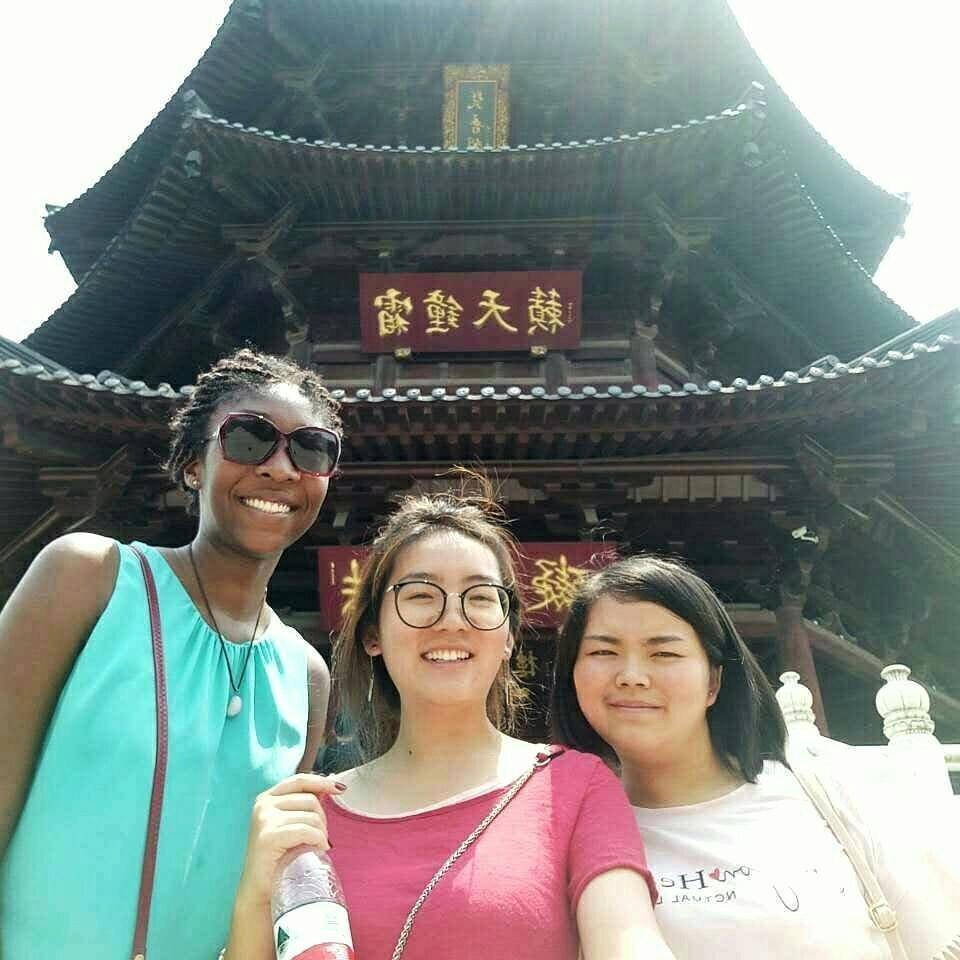Navigating Reverse Culture Shock
Rediscovering Home
After 7.5 years of living abroad, I found myself preparing for the grand return to the United States to start a new chapter of life. In hindsight, maybe 2020 wasn't the most opportune time for this transition. But living in Shanghai during the pandemic left me with little choice. So, with two suitcases and my cat Maui, I embarked on a 24-hour flight back home, eager to reunite with childhood friends and family and seamlessly pick up where I left off…Or so I thought.
The initial months were spent in my hometown of Atlanta, where I was somewhat taken aback when I realized my parents were back to their usual work routines. Did they not want to take a week off to relish my return?! Then, reaching out to old friends with a casual "Let's meet up for a drink and catch up" proved challenging. Between their demanding careers, plans with current friends, or arranging a babysitter for their kids, scheduling a meetup became akin to a logistical puzzle. When we finally did get together, the stark contrast in our life stages became evident. "You own a new car and a house?!" At the time, I was on the verge of turning 30 and could fit my entire life into two suitcases. I guess it's time for me to embrace this thing called "adulting."
Upon starting my new job in the States, conversations with my team usually followed this script: "Hi, I'm Ariel, and I just moved here from Shanghai." The typical response? "That's so cool." And just like that, seven and a half years of my life were reduced into a five-second exchange. After months of feeling adrift in the country I once called home, I came to realize that I was grappling with reverse culture shock. Just as I had afforded myself time and understanding when I ventured abroad at the age of 22, it was time to embark on the process of readapting to American life. Today, I'd like to share what I've learned about reverse culture shock over the past few years.
Understanding Reverse Culture Shock
Reverse culture shock is the emotional and psychological distress that can occur from a lengthy time away from one's home country. When we venture to a new place, we begin adapting to the cultural nuances, language, cuisine, social cues, and daily routines. These adaptations gradually become woven into our identity, altering the person we once were. Reverse culture shock can manifest in a variety of ways, from sadness and frustration, to loneliness and moments of melancholy. It's common to find it challenging to relate to friends and family who haven't shared these experiences, and a deep yearning for the foreign culture we left behind may ensue. Reacquainting ourselves with our home culture often requires us to retrace our steps and reverse the adaptation process.
Strategies for Coping with Reverse Culture Shock
Acknowledge Your Feelings: Understand that it's perfectly normal to experience a mix of emotions, including sadness, frustration, and confusion. Allow yourself the space to mourn the loss of the cultural world you left behind.
Set Realistic Expectations: While you were away, your home culture may have evolved, and your own perspectives and values likely have too. It's essential to set realistic expectations for how you fit back into your home culture. Take this time to reflect on your personal growth. Consider how your experiences abroad have enriched you, honed your skills, and provided valuable insights that can enhance your life now that you've returned home.
Stay Connected: Maintaining contact with the friends you made while abroad can provide a strong support system. Sharing your experiences and feelings with those who understand can be incredibly comforting and help alleviate feelings of isolation. Similarly, consider forging new connections once you're back in your home country. Seek out a community of fellow travelers who can relate to what you're going through.
Stay Open-Minded: Embrace the idea that change is an inherent part of life. Be receptive to new experiences and diverse perspectives, even if they differ from what you became accustomed to while abroad. This openness can lead to personal growth and enrich your life in unexpected ways.
Reconnect with Hobbies and Interests: Being involved with activities and hobbies you enjoyed before going abroad can offer a comforting sense of familiarity. These pastimes can serve as anchors during your transition and help you reconnect with the essence of who you are.
Continue Learning: Keep your curiosity alive by delving into your home culture. Stay updated on current events, explore new facets of your culture, or even consider taking language classes to maintain or enhance the language skills you acquired abroad. As a personal anecdote, upon returning home, I realized I had visited more foreign countries than U.S. cities. Now, I find joy in taking weekend road trips across the U.S. in between international adventures.
Remember, coping with reverse culture shock is a process that takes time, and it's absolutely okay to seek professional help if you're finding it challenging to adjust. With patience, self-compassion, and a proactive mindset, you can successfully navigate the intricacies of returning home after living abroad. This journey offers opportunities for personal growth, enriching your life in ways you might not have anticipated.
